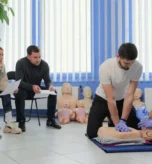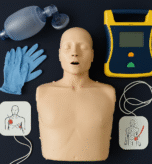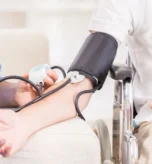In the fast-paced world of healthcare, medical emergencies can occur at any moment. One of the most crucial certifications for healthcare professionals is ACLS certification (Advanced Cardiovascular Life Support). This credential is essential for those working in critical care, emergency medicine, and other high-stakes healthcare environments. In this guide, we will explore what ACLS certification is, its importance, the training process, and how it benefits healthcare providers.
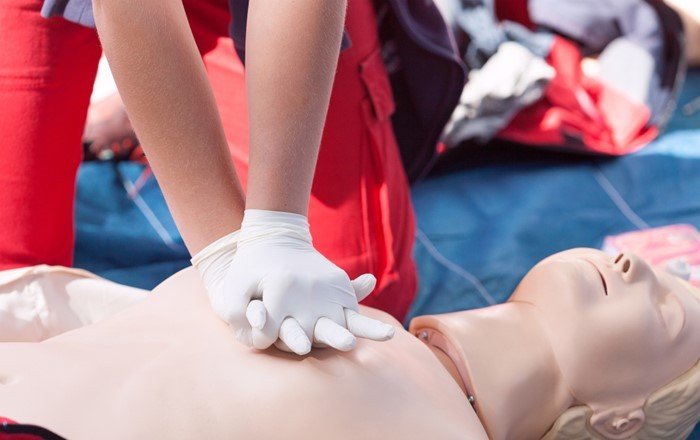
What is ACLS Certification?
ACLS certification is an advanced-level qualification that equips healthcare professionals with the knowledge and skills needed to manage life-threatening cardiac emergencies. It goes beyond Basic Life Support (BLS) by incorporating advanced airway management, pharmacology, and specialized techniques for handling cardiac arrests, strokes, and acute coronary syndromes.
Who Needs ACLS Certification?
ACLS certification is crucial for medical professionals who are directly involved in emergency and critical care. This includes:
Emergency Medical Technicians (EMTs) and Paramedics
Physicians and Nurses (ER, ICU, and Critical Care Unit staff)
Respiratory Therapists
Anesthesiologists
Nurse Practitioners and Physician Assistants
Dentists and other healthcare professionals who may encounter cardiac emergencies
The Importance of ACLS Certification in Healthcare
In a medical emergency, every second counts. ACLS certification empowers healthcare professionals with the ability to make quick, informed decisions. Here’s why ACLS certification is indispensable:
Enhanced Decision-Making Skills: Knowing how to quickly assess a patient’s condition and apply the correct intervention can be the difference between life and death.
Compliance with Healthcare Standards: Many hospitals and healthcare institutions require ACLS certification as a prerequisite for employment.
Better Patient Outcomes: Advanced cardiac life support techniques significantly improve survival rates and recovery times.
Increased Confidence in Emergency Situations: Being ACLS-certified means being prepared to handle cardiac emergencies with expertise and precision.
How to Get ACLS Certified
If you’re considering ACLS certification training, follow these steps:
- Choose an Accredited Course – Look for a program recognized by the American Heart Association (AHA) or the Red Cross.
- Complete the Training – Courses are available online or in-person, with hands-on skills assessments.
- Pass the Written Exam – Demonstrate your understanding of ACLS principles.
- Pass the Skills Test – Show proficiency in managing emergency scenarios.
Receive Your Certification – Once you pass, you’ll receive an ACLS certification valid for two years.
ACLS vs. BLS: What’s the Difference?
Both ACLS and BLS certifications focus on emergency care, but they differ in complexity:
- BLS (Basic Life Support): Covers CPR, AED use, and choking management, applicable to both medical and non-medical personnel.
- ACLS (Advanced Cardiovascular Life Support): Designed for healthcare providers, incorporating advanced techniques such as intubation, medication administration, and ECG interpretation.
Common Scenarios Where ACLS Certification is Essential
- Cardiac Arrest in the Emergency Room: A patient collapses, and immediate ACLS intervention is required to restore normal heart function.
- Heart Attack in a Hospital Setting: Timely medication administration and defibrillation improve the patient’s chances of survival.
- Stroke Management in Critical Care Units: Early recognition and treatment minimize long-term brain damage.
- Severe Arrhythmias in ICU Patients: Advanced interventions stabilize the patient’s heart rhythm.
- Sudden Collapse in a Public Space: An ACLS-certified professional can quickly take charge until additional help arrives.
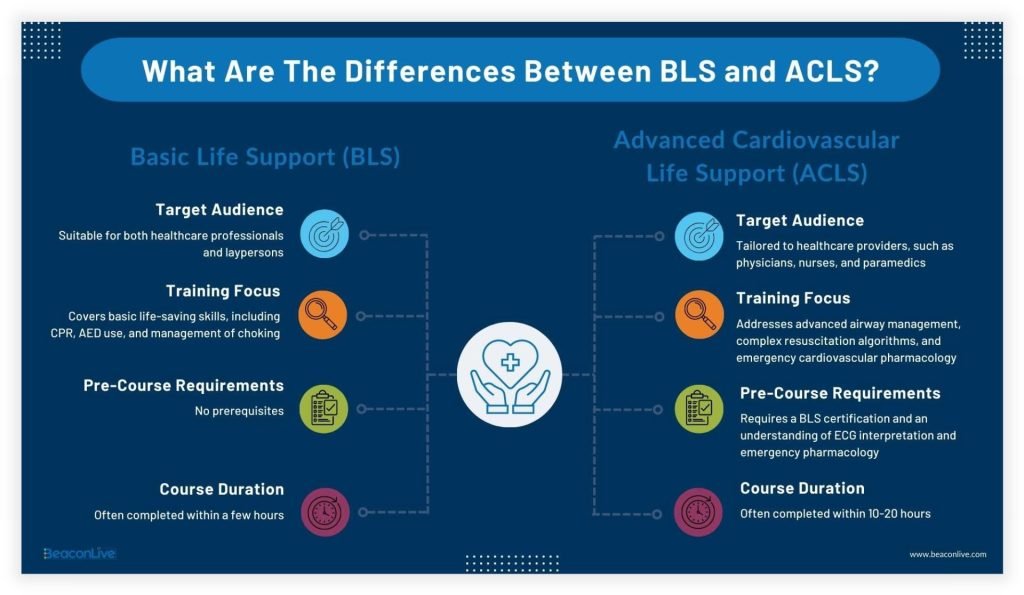
ACLS Renewal and Recertification
An ACLS certification is typically valid for two years. Healthcare professionals must complete a recertification course before their certification expires to stay updated with the latest guidelines and protocols. The renewal process includes:
- Reviewing updated emergency cardiovascular care guidelines
- Practicing new ACLS techniques
- Passing a renewal exam to demonstrate proficiency
Benefits of ACLS Certification for Healthcare Providers
- Enhances Emergency Response Skills – Equips professionals to handle critical cardiac situations effectively.
- Improves Patient Outcomes – Advanced intervention can significantly increase survival rates in cardiac emergencies.
- Expands Career Opportunities – Many healthcare institutions require ACLS certification for employment in emergency and critical care settings.
- Boosts Professional Confidence – Provides the skills necessary to perform under high-pressure situations.
Enroll in ACLS Certification Training Today
ACLS certification is a crucial step in advancing your healthcare career. Whether you are a nurse, physician, or paramedic, obtaining this certification can equip you with lifesaving skills and open new career opportunities. Enroll in an accredited ACLS certification course today and enhance your ability to provide high-quality emergency care when it matters most.

